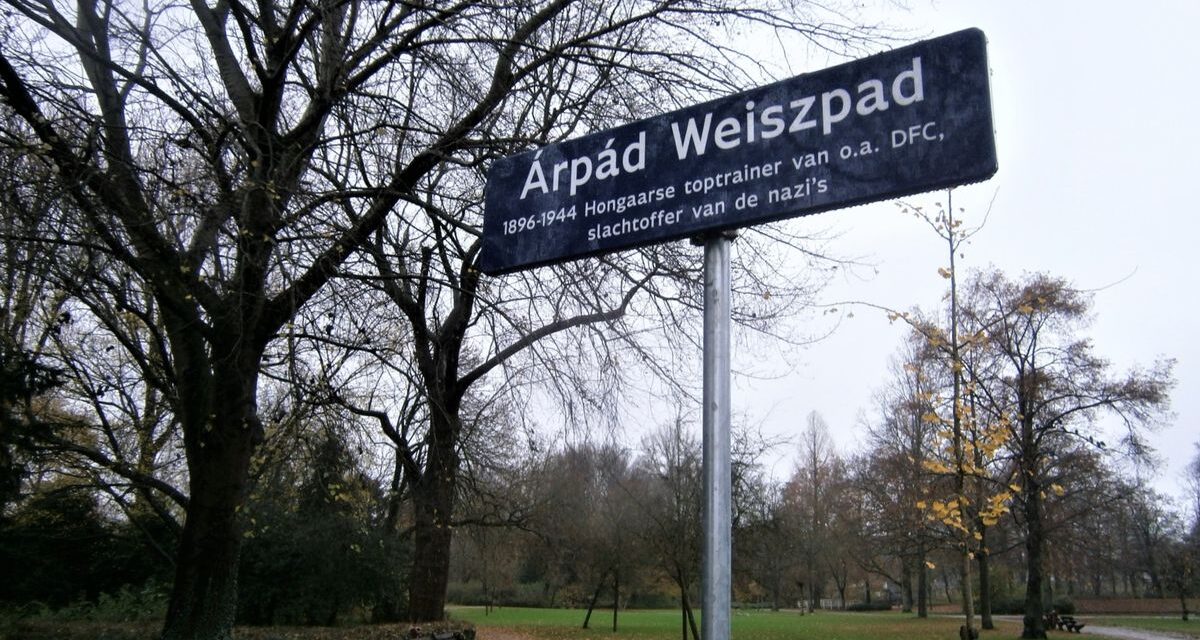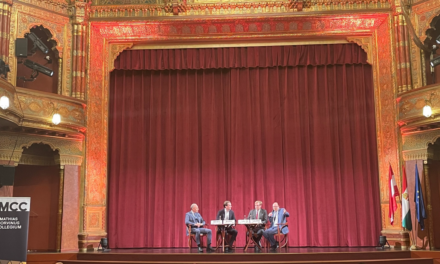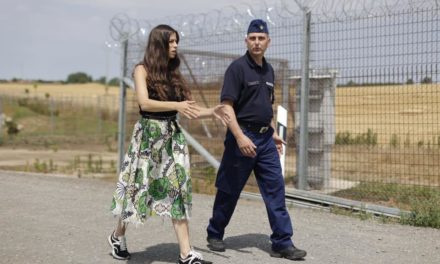After a statue was inaugurated in Budapest last year in honor of the training giant, this time a road was named after him.
Last year, a statue was inaugurated in memory of Árpád Weisz at the Eiffel Workshop in Budapest, and this time the former coaching legend of Jewish origin was recognized in the Netherlands. Paying tribute to the memory of Árpád Weisz, the most successful Hungarian coach in Italian football history, who died in the Auschwitz concentration camp, the Dutch named a road in the renovated Weizigtpark in Dordrecht after the Hungarian football hero, who achieved success with the city's team in the second half of the 1930s, reports the Volkskrant.
At the solemn opening ceremony, the Hungarian embassy was represented by diplomat Attila Szabó, who placed flowers at the monument of the six-time national team player and football coach.
As is known, Árpád Weisz was born on April 16, 1896 in Solto, Hungary, where his father was the local veterinarian. After his successful but short football career in Hungary, he moved from the Törekvés SE team to the Czechoslovakian Mackabi Brno team at the invitation of fellow footballer Gyula Feldmann, and then moved to Italy after the team's bankruptcy. He also spent one season at Padua and Ambrosiana Inter before becoming a coach after suffering a serious knee injury at the age of 30.
Success did not escape him on the bench either: Weisz became the youngest coach ever to win a championship in Italy. He led Ambrosiana to the Scudetto, the Italian league title, and in the process discovered a future world star, Giuseppe Meazza.
In Internazionale's legendary stadium in Milan, a plaque pays tribute to the legendary professional. In addition to the gold medal in 1930, he also collected two and a half Italian league titles with Bologna, which is considered to be the team of the era - it is no coincidence that he is mentioned by Italian fans to this day, especially during the club's miracle season this year.
The mention of the "half" championship title is particularly significant: Weisz coached Bologna's team that won the gold medal in the 1938-1939 season in the first five rounds, but due to the tightening of Italian racial laws, he and his family were forced to leave the team and the country in the second half of October. However, international success did not escape them either: in 1937, in the eight-team tournament organized in honor of the World Exhibition in Paris, they beat London's Chelsea in the final!
However, the politics of the time made it impossible for the coach, who moved with his family to France and then to the Netherlands, to Dordrecht, near Rotterdam.
He quickly made his mark in the Dutch city after making the band a front team. His memory is preserved to this day.
In recognition of his work, the road was also named after him. The goal of the Dutch Stolpersteine Foundation is to keep alive the memory of the victims of the Holocaust. As a result of the organization's initiative, this public baptistery in Dordrecht was created at the beginning of May.
Playing as a left winger and left back, Árpád Weisz was able to pull on the shirt of the Hungarian national team six times.
Nazi Germany invaded the Netherlands on May 10, 1940 and occupied it in just four days. Weisz was allowed to work until September 1941, but not after that, and his children were not allowed to go to school either. The Gestapo arrested the family in the summer of 1942 and sent them to the Westerbork concentration camp. From there they were transported to Auschwitz at the beginning of October, Árpád Weisz was separated from his family before his children were murdered in Birkenau on October 2, 1942. Weisz later died in Auschwitz on January 31, 1944.
Starting from Hungary, Árpád Weisz had a worldwide career in a short time. The quality of his work is not only indicated by his brilliant successes, but also by the fact that his memory is cherished at all his stations to this day.
He was Italy's most successful Hungarian coach between the two world wars.
This is a huge recognition, especially considering that nearly ninety of our compatriots worked in various areas of Italian football in those decades.
However, the former national team player, nicknamed Csili, emerged not only from the Hungarian contingent, and not only in that era: we can proudly say that Árpád Weisz is also one of the most successful foreign coaches in the history of Serie A!
Cover image: The road named after Árpád Weisz in Dordrecht
Source: Embassy of Hungary/The Hague













